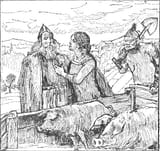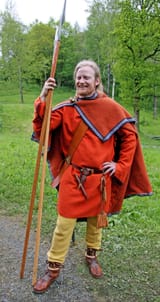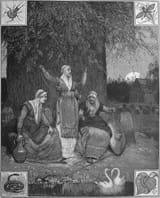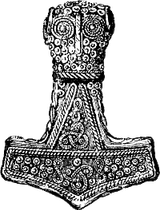>>17970716
>ask and embla
i will admit you have something there since there is a conflicting problem with tacitus' account, which states that iscio or escio was one of three sons of mannus, and these three sons spawned the three main tribal groupings of the germans. its highly likely this 'iscio' is actually ask, but why he is only the progenitor of one third of the german race when he is the progenitor of them all in the norse account is a mystery. in fact the entire concept of mannus and his three sons, a major feature of continental germanic culture, seems entirely absent in the north, which is admittedly puzzling. the only reference is to the ynglings, the dynasty of the swedish kings, which is cognate to the ingvaeones mentioned by tacitus. but why then is ask their primordial ancestor? its possible that we are looking at multiple creation myths from different germanic tribes being squeezed into a single cohesive story, which might belie some christian influences. we see this problem in greek mythology, where even metamorpheses gives a couple different accounts as to the creation of mankind, likely an attempt by ovid to weave together the regional stories of different parts of the hellenic and latin world. overall though, i disagree with the notion that the eddaic lays are heavily christian-influenced; the only influence i have detected in my studies is subtle and minimal
such differences between clans are impossible to truly know with the limited data available to us. for example, we know the woden was associated with herbal magic and healing spells in anglo-saxon mythology from the 9 herbs charm, which seems to be a lacking feature of odin in the norse myths. but is this because woden was different from odin in this respect, or it is because we are missing critical information about both? is the 9 herbs charm a uniquely anglosaxon poem, or did it have correlations in the north, similar to how the nibelungenlied finds its nordic cousin in the niflung saga?




